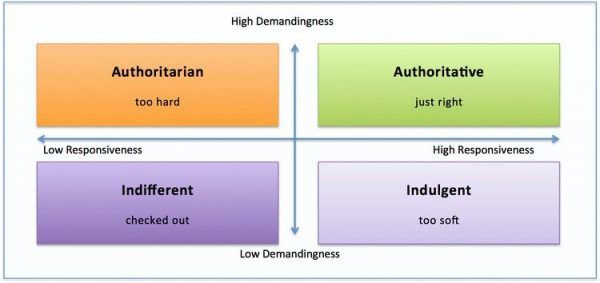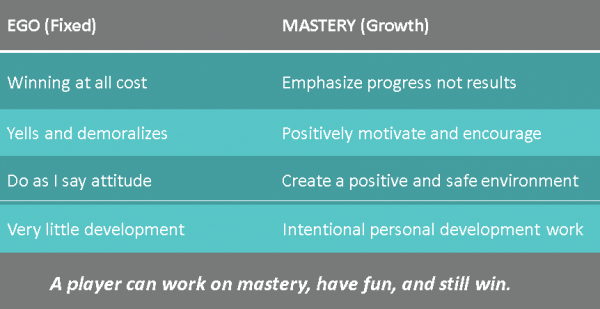
Positive Mental Character Builds Champions
Positive mental character develops over time from positive conscious coaching and ultimately creates champions. There are so many reasons and research studies that prove sports builds character in all individuals. Victory doesn’t happen without character or some form of it. There are consequences for athletes who miss out on a healthy perspective around competition and the true essence of sports.
An unhealthy experience can lead to a mentally fragile tennis player and inconsistent play. Coaches have the most powerful voice for these athletes. They are front and center. Their players are always waiting for guidance and hang on every word their coach puts out there. Coaches can create a positive culture where each and every athlete receives the most influential and motivational voice.
Adult indirect influence – parents & coaches
In conscious coaching, we have the choice to create a culture where individuals are allowed to grow or a culture where individuals feel stressed, burnt out, and feel stuck.
Starting at a young age, kids observe adult values. These might be good values or not-so-good values. For example, when you buy a child’s movie ticket for a small teenager. When you tell jokes that disrespect differences in gender, race, or religion. This is how kids learn right from wrong. They internalize almost everything they see in their environment and think that if you are doing it, it must be the ‘right way’ of doing it.
Sports culture influence
On top of what they observe from parents & coaches (or anyone they spend a large amount of time with) there is a huge influence by our sports culture as is portrayed in the media including social media. Kids believe what they see and think it to be the norm. For example, when kids see the top, most visible athletes, being associated with fame, money, winning and sometimes cheating that becomes their expectation.
The mental impact of outside influences
All the aforementioned influences can impact a child’s ability to not only play sports but develop into a healthy individual. Here are some of mental impacts of outside influences that demonstrate a lack of core values:
- Become unfocused
- Lack resilience
- Externally motivated
- Lack confidence
- Become negative
Conscious parenting & coaching
It’s hard to be a parent or a coach but I’ll bet you are doing the best you can. I’ll bet there’s a lot more to it than you thought. You have a huge influence over the development of kids starting at an early age. There are a lot of parenting styles but here are the pretty consistent ones such as this from Developmental Science.
Parent Model

Coaches Model
The choice of experts in terms of parent styles is the authoritative. It teaches parents to be warm, understanding, teach autonomy and individualism, responsibility and appropriate expectations. This model is not far from the model I teach coaches using the ego versus mastery comparison. Or in other words, developing a growth mindset rather than a fixed mindset.

The areas that make the most impact when I work with coaches are:
- show support by getting to know their players
- ask questions versus telling
- model positivity, motivation and confidence
- empower kids to be part of the decision-making process
- Incorporate fun
These models for coaches and parents naturally allow for the development of positive mental character and solid core values.
Top 5 athlete core values that build positive mental character
Most of the time, you aren’t born with these. It takes a solid effort and conscious effort for all parties to develop these values.
Confident
Athletes must have an unshakable self-belief in their abilities and skills. That is, they expect to be successful.
- Challenge: Parents and coaches can add to diminishing confidence by defining success as – outcomes, wins, being perfect, and not making mistakes.
- RECOMMENDATION: help build their confidence
o Focus on being process driven, not outcome driven
o Discuss effort versus winning
o Talk about mistakes as being positive; a learning experience
o Understand that perfection doesn’t exist
o When you hear negativity, help athletes reframe it into something more positive
Resilient
Players must have the ability to bounce back and refocus after failures and letdowns, to bring their best effort to their next point, set, match, tournament, or training session.
- Challenge: Parents and coaches can add to diminishing resilience by how you hang on to mistakes, punish for mistakes and focus on behavior around mistakes.
- RECOMMENDATION: help build resilience
o Work on why the mistake happened
o Encourage them to let go of the mistake – learn and move on
o Do not yell
o Ask open-ended questions to help kids think about the mistake and what they might not understand
o Highlight successful moments.
Engaged
Athletes should have their full focus directed on what matters in that particular moment and be invested in their own success.
- The Challenge: Parents and coaches can add to a lack of engagement by how you engage with them, involve kids in the process of activities, emphasize “play only to win’, and use yelling, exercises, punishment, and benching.
- RECOMMENDATION: help build engagement
o Build relationships with them for a closer bond
o Empower kids to increase motivation
o Teach how to not focus on the score – to be present
o Ask questions versus more authoritarian mode of communication
Respectful
Players should always act in a way that demonstrates appreciation for the game, courtesy to their opponents and teammates, and focuses on bringing out the best in others – all while demonstrating sportsmanship and honoring the rules of tennis.
- The Challenge: Parents and coaches can add to a lack of respect by how you focus on “win at all cost” attitude which can create bad sportsmanship.
- RECOMMENDATION: help build respect
o Discourage cheating to win
o Help them understand that not winning every single time is ok
o Develop sportsmanship – fairness, courtesy, and how to be a good loser
o Demonstrate what it means to be respectful of themselves
Tough
Athletes must be able to endure periods of difficulty and adversity in training and competition, both mentally and physically. They must embrace pressure and accept the challenge to continue to grow as a player and as a person, remaining resolute in their desire to succeed.
- The Challenge: Parents and coaches can add to diminishing toughness by how you teach kids to deal with difficulty and adversity, allow kids to run from pressure, and tie success to winning.
- RECOMMENDATION: help build toughness
o Teach how to deal with difficulty and adversity
o Discuss what pressure is and how to deal with it
o Tie success to intent and effort
Positive mental character develops successful champions
Sports is not all about winning. It’s about enjoyment and learning to play. For kids to be the best version of themselves inside and outside of sport – to focus, to attack problems before they are problems, to work smarter and not harder, and to achieve levels they really want and dream of – teach your kids and your athletes that winning is just one indicator of success. Life skills and good character built by playing sports develop stable mental skills and stable, balanced athletes and champions.




